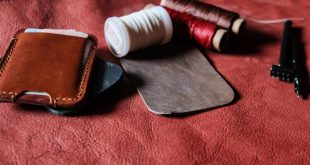
Starting your woodworking journey can feel overwhelming when you walk into a hardware store and see countless tools lining the shelves. You might wonder which ones you actually need and which ones can wait for later projects. Building a solid foundation with the right equipment helps you tackle most beginner projects while staying within budget.
Choose Your Measuring Tools First
Accurate measurements separate amateur work from professional-looking results. A quality tape measure will be your most-used tool, so invest in one with a sturdy case and clear markings. Look for models with a standout length of at least 10 feet.
A combination square deserves equal priority in your toolkit. This versatile tool checks right angles, measures depths, and marks cutting lines with precision. Many experienced woodworkers consider it indispensable for layout work.
Cutting Tools Form Your Workshop Foundation
Hand saws remain relevant even with power tools available. A crosscut saw handles most cutting tasks for beginners, while a dovetail saw excels at precision work. These tools teach you proper technique and give you better control over delicate cuts.
When you’re ready for power tools, a circular saw offers incredible versatility. You can rip boards, make crosscuts, and even cut angles with the right setup. Take time to research whether carbide or steel blades are better for your specific projects and budget.
Shaping and Smoothing Equipment
Sandpaper in various grits becomes essential for finishing work. Stock up on 120-, 150-, 220-, and 320-grit papers. Sanding blocks maintain flat surfaces and prevent uneven scratches.
A random orbital sander speeds up the finishing process significantly. These tools remove material quickly while leaving a smooth surface ready for stain or finish.
Assembly and Fastening Solutions
Clamps hold your projects together during glue-up and assembly. Bar clamps work for most situations, but pipe clamps offer more reach for larger projects. Start with four 24-inch bar clamps and expand your collection as needed.
A cordless drill handles both drilling and driving screws efficiently. Look for models with adjustable torque settings to prevent overdriving screws.
Safety Equipment Protects Your Investment
Safety glasses prevent eye injuries from flying debris and dust, making them an essential piece of equipment. Choose wraparound styles for better protection, and keep multiple pairs around your workshop.
Hearing protection preserves your long-term health when using power tools. Foam earplugs work fine, but over-ear protection offers more comfort during extended use. Additionally, a dust mask filters harmful particles from the air you breathe. Disposable masks handle light sanding, while respirators provide better protection for heavy dust creation.
Start Building Your Workshop Today
These essential woodworking tools provide everything needed to try out DIY wood crafts and build confidence in your abilities. Focus on quality over quantity when making purchases. Well-made tools last decades and perform better than cheap alternatives.
Consider buying used tools from estate sales or online marketplaces to stretch your budget further. Many vintage tools rival modern quality when properly maintained. Start with these fundamentals, then add specialized tools as your skills and project complexity grow.
 World inside pictures Collect and share the best ideas that make our life easier
World inside pictures Collect and share the best ideas that make our life easier








